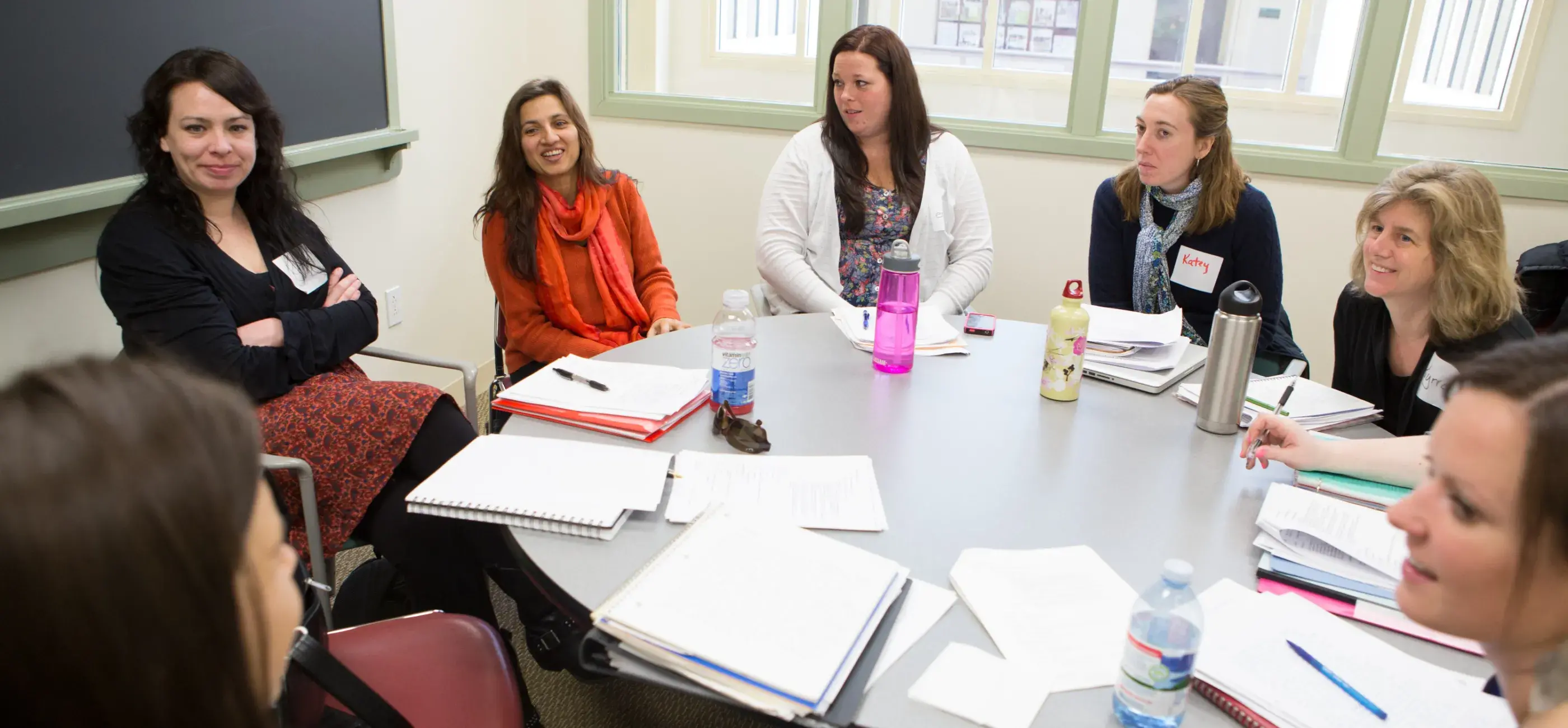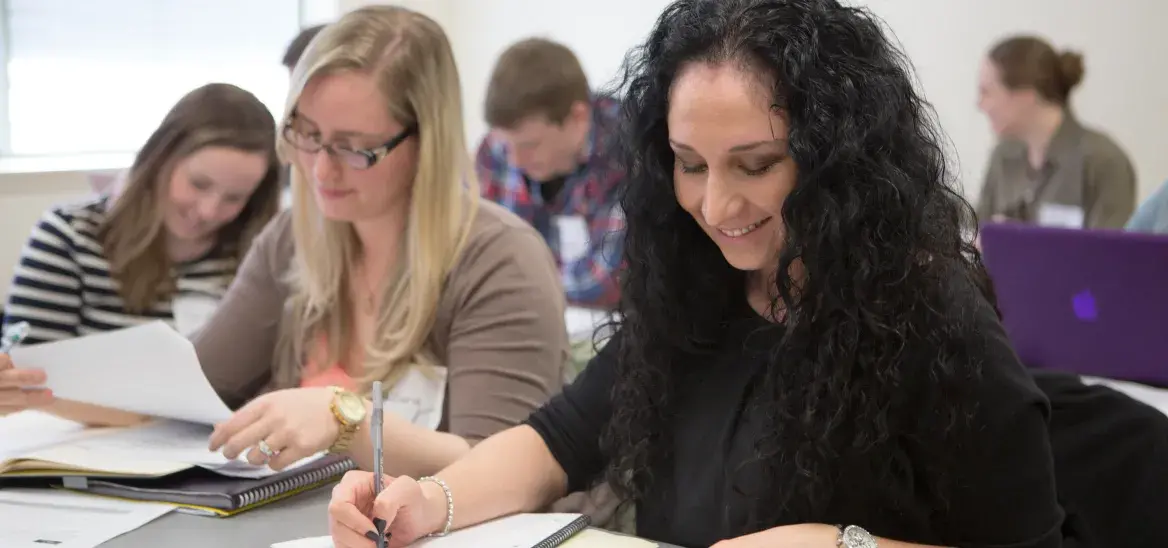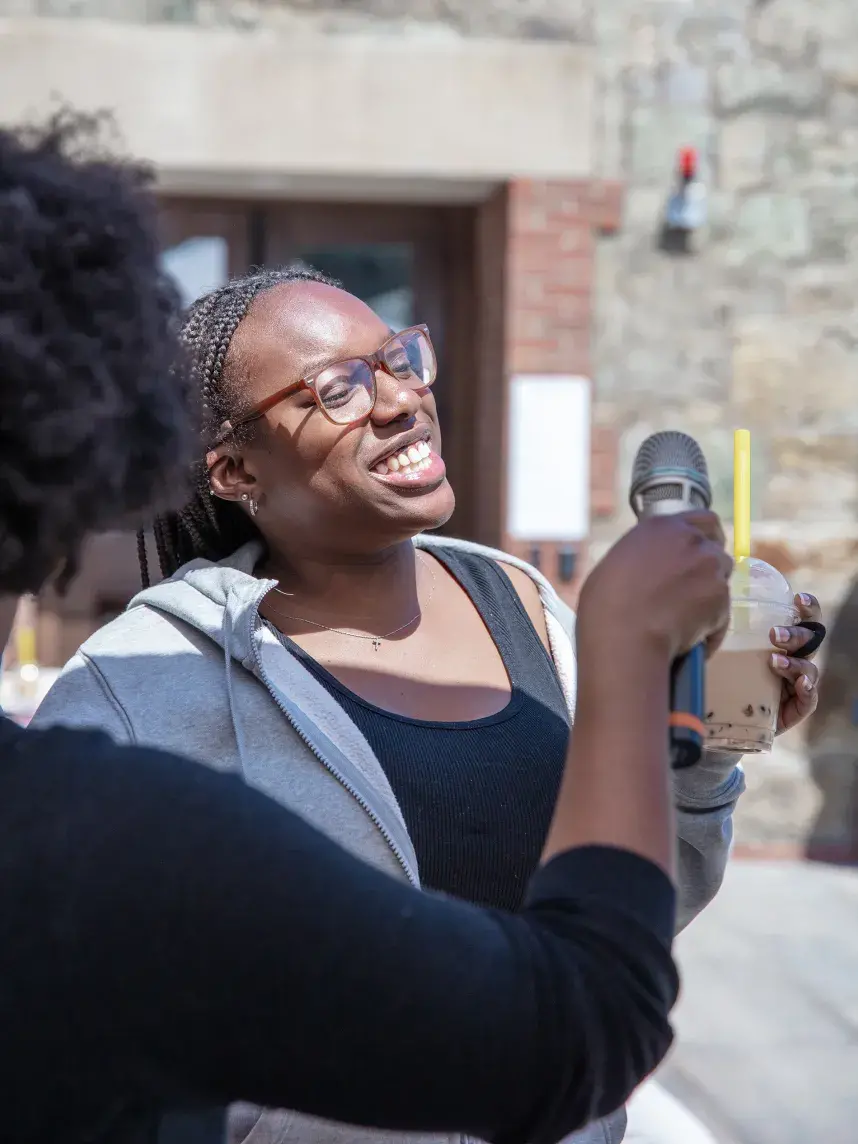- 60 credits
- 36 core credits
- 12-18 elective credits
- Program begins in both fall and spring
- Typical program length is 2.5 years for full-time students
- Choose from four specializations: Holistic Studies, School & Community Counseling, Trauma Studies, and School Counseling
- Earn a degree that prepares you to become a Licensed Mental Health Counselor (LMHC) in Massachusetts
- Earn a dual degree in School & Community Counseling (eligible for both licensure as a Mental Health Counselor in addition to the initial license as a School Counselor (K-12) or School Adjustment Counselor (K-12) from the Massachusetts Department of Elementary and Secondary Education

Counseling & Psychology

Counseling & Psychology Master’s Programs At-a-Glance

Become the Counselor You're Meant to Be
Lesley’s master-level counseling and psychology programs prepare students to succeed as clinicians in a variety of different settings and situations. We offer four distinct specializations, unique opportunities to earn dual licensure, and unmatched access to guaranteed internships and fieldwork with leading mental health organizations. Our students graduate ready to make an impact in the places where they’re needed most and become part of an alumni network and learning community that’s with them for life.
Meeting an Enormous Need
Whether your passion is helping families heal from trauma, or making an impact within a school setting, Lesley will empower you to shape the specific educational path that you want - and that the world needs.
As a Lesley Counseling & Psychology student, you have the option to work toward dual licensure for school and community counseling. Dual licensure is a competitive advantage that qualifies you to work in a range of different roles and settings.
Guaranteed Internships, Lifelong Support
At Lesley, we believe that applying what you learn in the classroom through practical experience is key to transforming students into skilled and compassionate practitioners. That’s why our Scholar Partner Program, which matches students with internships at respected organizations like the Dimock Center and Riverside Community Care is an essential component of all of our Mental Health & Well-Being programs.
Our goal is to have these internships awarded upon acceptance to the university. That means you’ll have the chance to be exposed to real-world clinical settings from day one, allowing you to build your skills, gain experience, and explore different facets of the field. You’ll begin to imagine where you might go, and the kind of practitioner you want to be. See a complete list of sites where our students intern through Lesley’s Scholar Partner Program.
This ecosystem of community and support extends far beyond graduation, which is why alumni and practitioners at every stage of their careers turn to us for training and resources. At Lesley, you’ll feel supported and connected through every part of your education, and every phase of your professional journey. Learn more about the resources we provide to Lesley alumni and working professionals.
Take the next step
Ready to begin your journey with Lesley? Share some basic information by filling out one of the forms below so that we can reach out to you with more information about our programs. Or, email admissions@lesley.edu to connect with a member of our admissions team.
Undergraduate & Transfer:
Inquiry Form | Visit | Apply
Graduate:
Inquiry Form | Visit | Apply
Threshold Programs:
Inquiry Form | Visit | Apply